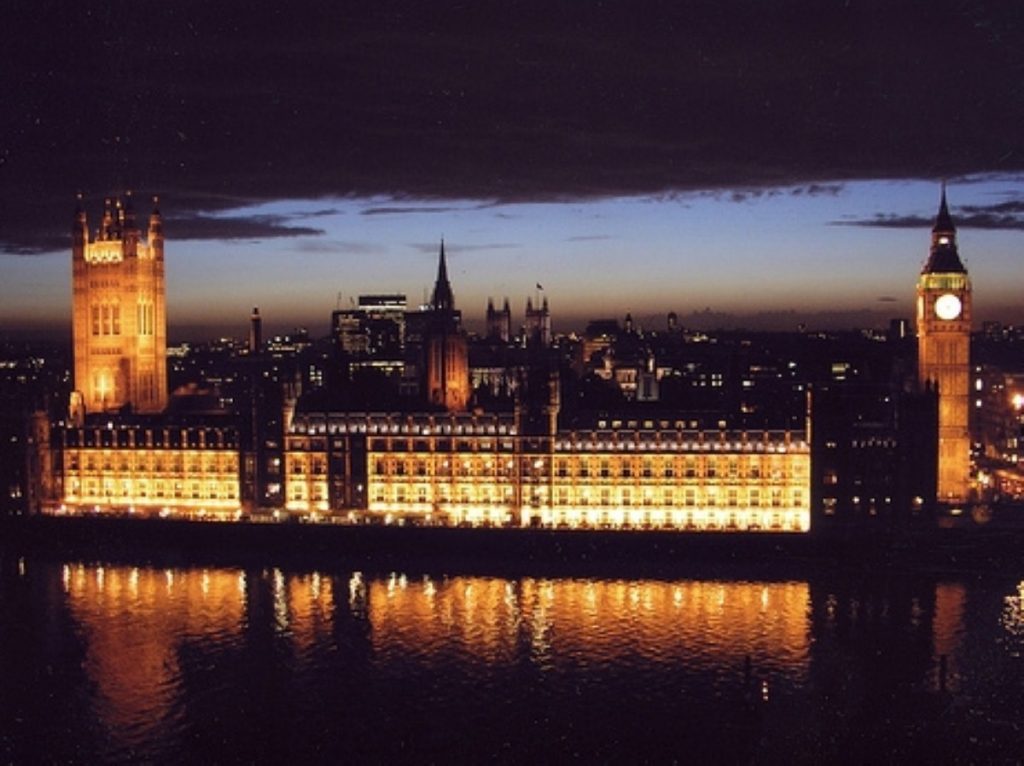Libya debate sketch: Miliband was more pro-govt than the PM
This was laser-guided politics, with Miliband locked on for consensus. Boom! Cameron and co didn’t stand a chance.
Never before has Ed Miliband proved such an effective spokesman for the government.
He backed New Labour for years and years. He stuck with Tony Blair and then, with gritted teeth, he stuck with Gordon Brown. Yet, in all that time, Ed Miliband’s loyalty never proved as valuable as it did this afternoon.


On a weekly basis we see the leader of the opposition and the PM going head-to-head. The Labour leader, perfectly adequate when it comes to engaging in a bit of party politics, surpasses himself when it comes to statesmanlike unity. He argued in the Commons with a passion that was simply absent on the expressionless faces of Her Majesty’s ministers. They treated the issue with the gravity befitting its significance, but they did not appear to be fundamentally moved by the situation. Miliband did. And how.
“I rise in support of the government motion on the order paper,” the leader of the opposition began solemnly. This was unusual, but then the Commons does not usually debate on a military intervention with the full weight of the United Nations behind it. Miliband, unshaking in his firm belief in the righteousness of the British involvement in implementing the no-fly zone over Libya, was not going to deviate for a minute from his message. This was laser-guided politics, with Miliband locked on for consensus. Boom! Cameron and co didn’t stand a chance.
When Conservative backbencher Robert Halfon blamed Tony Blair’s friendship with Muammar Gaddafi for the present mess we’re in, in virtually the only partisan point made during the debate’s first hour-and-a-half, Miliband was clear in his condemnation. “Today is not the day for party political point-scoring,” he intoned sonorously. There was not to be a single deviation from the government’s line.
Where David Cameron had cautiously confined himself to repetitions of the legal arguments for war, as concrete as those for Iraq was were spurious, Miliband allowed his rhetoric to fly off into idealistic realms much closer to Labour’s viewpoint than the coalition’s.
He rejected the idea that this was a civil war, insisting instead it was a “revolution” of the people against the government.
“This debate is not about rights,” Miliband continued. “It is about responsibilities”. He sounded like Brown talking about the NHS.
And then came the first of a number of mentions of Kosovo, as Miliband mentioned he had been reading through the debate in which the late Robin Cook outlined the government’s intervention. “We didn’t know when it was going to end,” he remembered feelingly, “but by taking action we saved the lives of millions of people in that country.”
The very odd feeling that something thoroughly unusual was happening grew in proportion to Miliband’s intensifying fervour. Never was this the case more than when backbenchers of his own party began raising objections. Miliband defended the government’s approach to the teeth.
David Winnick suggested that the west only intervened when its interests were at stake. Dennis Skinner’s concerns that “it’s easy to get into a war, it’s much harder to end it” were repeated by a Tory MP. Fiona Mactaggart sought reassurances that the government would regularly update the Commons.
“This is not a perfect world,” Miliband warned. He sat bolt upright as he listened to interventions. He clutched the back of the frontbench as he peered behind him to listen to Labour MPs. He was restless, fevered almost, as if struck by the virtue of the cause he was embracing. His eyes, naturally sullen, looked bright. His manner was not so much fidgety, as frantic. It was like watching an Eeyore, after his 13th coffee.
Miliband replied to the doubters by using all the stock phrases of a pragmatic administrator. He was so good at this that the real figures actually in government became virtually invisible – unless the Labour leader deigned to notice that they were “nodding on the front benches” in agreement with him, of course.
(He was not quite accurate, here. Nick Clegg was nodding away on an almost permanent basis as Miliband delivered his paeans of praise. But Cameron merely frowned, motionless, as if petrified by bafflement at the strange turn of events that had led to this very odd speech.)
Even when Miliband turned to the section of his notes on seeking “clarity” in the government’s approach, it did not live up to the promise of qualifying concerns which would cover any normal opposition leader’s back in the event that it all goes horribly wrong. It was over in the blink of an eye; before these brief points had been registered by those present he had moved on. Miliband was summing up by referring to his maiden speech, and his vow that all his work in parliament would “reflect the humanity and solidarity” shown to his family as they fled the Holocaust. This “story of hope” was what motivated him personally, he explained. It felt a bit much, but Miliband didn’t see it that way. The echoes of Tony Blair reverberated as he talked of the “shadow of history”. Did he feel the hand of that shadow, perhaps, on his shoulder? Well, it didn’t matter if he did. What mattered, it was clear, was that Miliband really cared.
Of course ministers care too. They believe they are doing the right thing. But it’s not very British to show these feelings to the extent the Labour leader did. It makes more traditional folk feel ill at ease.

